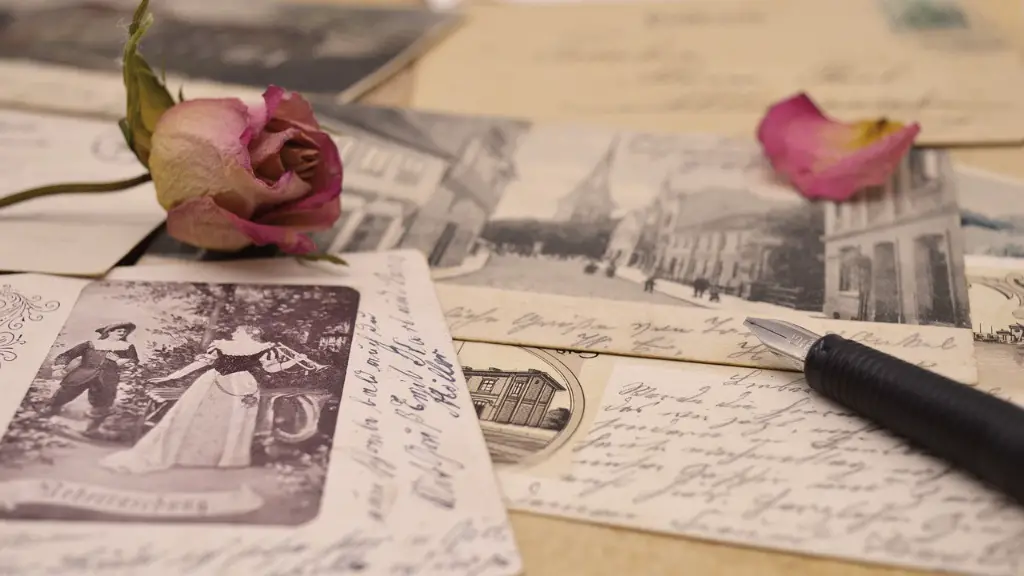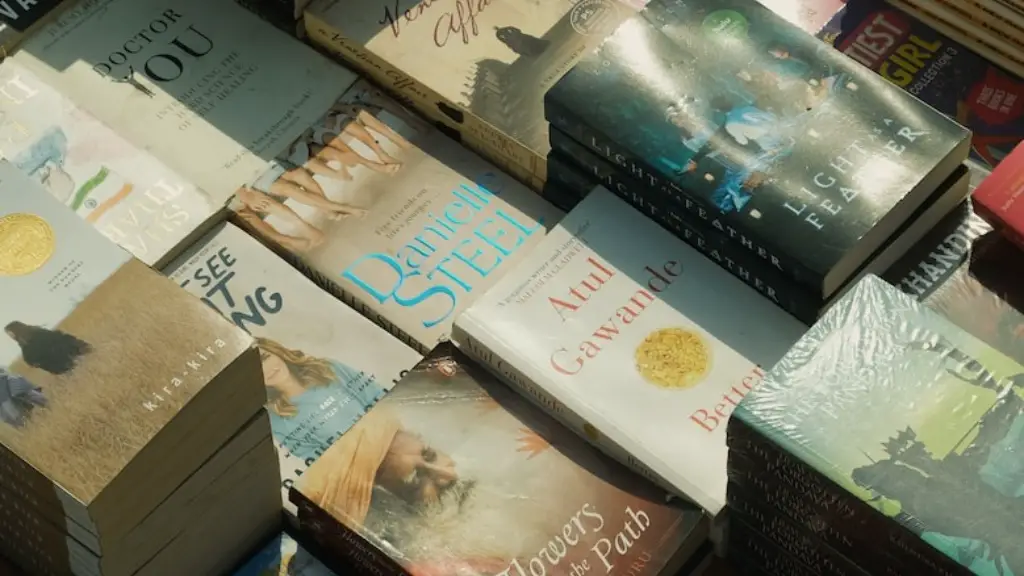Langston Hughes and His Life Achievements
Langston Hughes was a significant African-American poet, author and playwright. He was a key figure in the Harlem Renaissance, a social, artistic and intellectual movement in the mid-1920s that saw the emergence of an African-American cultural identity. An enthusiastic advocate of African-American rights and self-expression, Hughes wrote numerous works that remain celebrated today, including short stories, poetry, and plays. He inspired countless other African-Americans with his commitment to social justice and his willingness to challenge societal norms.
Born in 1902, Hughes was raised in a working-class family in Kansas. His father eventually abandoned them, leading Hughes to relocate with his mother to the suburbs of Chicago and then later to Mexico. After returning to the United States in 1921, Hughes moved to Harlem to finish high school and attend Columbia University, a prestigious school traditionally reserved for white students. His experiences in New York City – a unique and dynamic center of African-American culture – had a profound impact on Hughes, leading him to adopt a new vision of racial integration and justice.
By writing about the hardships, joys and aspirations of African-American life, Hughes brought attention to the struggles of black Americans who, after World War I and the Harlem Renaissance, faced seemingly insurmountable odds. He wrote and published his first poem, “The Negro Speaks of Rivers,” in 1921 and went on to produce some of the most-recognized works in all of African-American literature. His poetry, such as “I, Too” and “Dream Variations,” is renowned for its exploration of themes such as race, identity, and justice. He also penned one of his most beloved works, “The Weary Blues,” in 1926.
In addition to exploring African-American themes, Hughes was also a great intellectual. He wrote plays and essays exploring different aspects of the human experience and was well-read in the works of French, Spanish and Renaissance-era authors. He was a passionate and tireless advocate for African-American rights and often wrote about the need for social justice and economic parity among all races.
Because of his commitment to the civil rights movement, Hughes was blacklisted by the FBI during the McCarthy era of the 1950s. Despite this, Hughes continued to be an influential figure in the literary and civil rights movements, inspiring countless African-American artists, poets, and other creative individuals. Hughes died in 1967, but his legacy continues to far exceed any definition.
Hughes’ Poetry
One of Langston Hughes’ best-known works is his poem “The Negro Speaks of Rivers,” an ode to his African-American heritage. This poem explains the journey of African-Americans through time, beginning with their enslaved origins to their pursuit of prosperity and freedom. This poem also directly confronts the idea of white supremacy, calling out the hypocrisy of the United States’ long-held belief that all humans are equal.
In addition to this poem, Hughes wrote many other poems exploring the beauty of African-American life. He wrote about his love of jazz and blues music, the joys of dancing to these musical styles, and the constantly changing nature of African-American life. He also wrote about daily struggles, including racism and segregation, that African-Americans faced during his time. Lastly, his work often explored the importance of black identity in American culture.
His poems are renowned for their use of vivid imagery and metaphors that bring his messages to life. He also used a specific poetic style to bring attention to the plight of African-Americans, utilizing a repetitive structure to hammer home his points.
Though his work often touched on dark topics, Hughes’ poetry was rooted in a deep appreciation for African-American culture and history. He believed that it was essential for African-Americans to embrace their heritage and use it to empower themselves in an ever-changing society.
The Legacy Of Langston Hughes
While Hughes’ career was cut short by his death in 1967, his legacy has gone on to inspire countless individuals. His work has been celebrated by writers, poets, and professors, who have come together to recognize and celebrate his life and work. Hughes was also honored with a postage stamp in 1991 and was the first African-American honored with the Poetry Society of America’s highest award.
His poetry has also been included in numerous books, periodicals, and anthologies. His poem “I, Too” was even included in the movie, The Right Stuff, an Academy Award-winning production about the Mercury Astronauts. Furthermore, his works have been translated into multiple languages and are still read, taught, and studied in colleges, universities, and high schools across the globe.
Though he is no longer with us, Hughes’ legacy will continue to live on. He is remembered as an accomplished poet and a tireless advocate for civil rights, and his works have inspired generations of African-American activists. His dedication to justice and his willingness to challenge prevailing norms will remain an inspiration to future generations of dreamers.
Hughes’ Plays
In addition to his renowned poetry, Langston Hughes wrote several plays in the late 1930s and 1940s that explored African-American life in the 20th century. His most famous play was the 1940 drama Mulatto, which told the story of an interracial couple’s struggles to be accepted by society. This play was a revolutionary work that pushed boundaries and opened up discussion about difficult topics. Its controversial nature drew criticism from both the white and black communities, but nonetheless it was a huge success.
Hughes wrote several other plays throughout his career, many of which explored similar themes. In his 1942 play, Don’t You Want to be Free?, Hughes takes a comical look at the struggles of African-Americans in the early 20th century. Hughes’ 1945 play, Limitations of Life, is a powerful exploration of the double standards that existed in post-war America. In his final play, Simply Heavenly, Hughes brings his always-present themes of race and identity to a rock-and-roll musical.
Hughes’ plays were revolutionary for their time and remain some of the most produced plays today. They are known for their lyrical dialogue and exploration of race in American society. They have been performed hundreds of times on stages around the world and remain an integral part of African-American theatre.
Hughes’ Legacy In Popular Culture
Though Hughes died over 50 years ago, his influence is still seen in popular culture today. He has been referenced in numerous films and video games and his poetry has been sampled in music by artists across the world. Furthermore, books, journals, and other publications continue to be published with essays exploring Hughes’ life and work.
Hughes’ life and work remains an inspiration to all who want to challenge the status quo, fight for civil rights, and explore their identity. His passion and commitment to social justice, along with his vast and varied body of work, will be remembered for generations to come.
Hughes’ Contribution to Literary Education
In addition to being a notable poet, Hughes was also an accomplished educator. He was a professor of creative writing at the University of Chicago and was a mentor to many of the great African American writers. He insisted that African American literature should not be concerned with “uplifting” themes, but rather that it should be deeply rooted in the culture and experiences of African Americans.
Hughes was also a prolific speaker on college campuses. He took great care in selecting his topics for his lectures and was even invited to give guest lectures at Harvard and other prestigious universities, demonstrating the profound respect he earned from the literary community. He used these lectures to inspire and motivate young African-American writers to embrace their unique culture and experiences.
Today, Hughes’ works are frequently studied in classrooms and are seen as some of the greatest pieces of literature in American history. He is also widely celebrated as an educator who believed in and encouraged the development of African-American literature. His commitment to education, justice, and inspiring others has made him an essential figure in the history of American literature.
Hughes’ Impact On The Civil Rights Movement
In addition to his profound artistic contribution, Langston Hughes was also an important activist in the 20th century civil rights movement. Hughes was a lifelong advocate of equality and justice and spoke out passionately against racism and injustice. He was a vocal supporter of the NAACP and other civil rights organizations, with many of his poems becoming rallying cries for the cause. In particular, his poem “Let America Be America Again” was seen as a direct challenge to the unequal treatment of African-Americans.
Hughes was also a part of the Chicago Defender, a newspaper that fought for civil rights, and was a close friend of civil rights leader W.E.B. Du Bois. He used his public platform to call out racism and injustice, often putting his own safety at risk. Hughes was also a sharp critic of McCarthyism, particularly its implications for African-Americans. He believed that equal rights should be extended to all people and that African-Americans should be respected as citizens of the United States.
Though his career was cut short by his death in 1967, Langston Hughes left an indelible impact on the civil rights movement. His commitment to justice and his willingness to challenge prevalent norms has been an inspiration to generations of civil rights activists. His works will continue to be admired for their power and depth, as well as for their ability to challenge the status quo.





